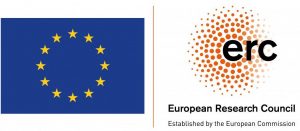
DiCED – A Major project to investigate the impact of digital campaigning on democracy
Almost three years after the UK voted to leave the EU – an outcome which some say was heavily influenced by targeted advertising on Facebook – an important new research project examining the impact of digital campaigning on democracy in five countries is about to begin.
The project will be led by Rachel Gibson, a Professor of Political Science from The University of Manchester. The key goal will be to examine how digital technologies and new forms of data are reshaping the electoral landscape and the nature and purpose of political campaigns, in both new and old democracies.
Focusing on the USA, the UK, France, Germany and Poland, the project will provide one of the first in-depth comparative analyses of what has been dubbed a new form of ‘data-driven’ political campaigning. It will look at where this new mode of electioneering is emerging, and ask why it is more prominent in certain countries.
Perhaps even more importantly, it will investigate what impact online political campaigns have on voter decision making, by looking at whether it increases voters’ access to information on the issues they care most about, or in fact results in the spread of misinformation and deliberate attempts to manipulate voter opinion and choice.
The research will also examine whether political parties use the new tools to reach out to new voters and those that are typically harder to reach, or instead focus on already engaged citizens, who are most likely to turn out on polling day.
To deliver on these goals, the project will draw on a range of established and new cutting-edge methods and data that will allow for unique insights into how and where the new practices are being deployed.
“This research will provide systematic and robust answers to questions about the impact of new political practices and their future growth,” said Professor Gibson. “There is considerable concern – and even panic – in many democracies about how personal data is being used to influence the political attitudes and behaviour of citizens. The project aims to put those claims to the test, and see how the well-founded current speculation about negative effects of the new forms of campaigning are.”


